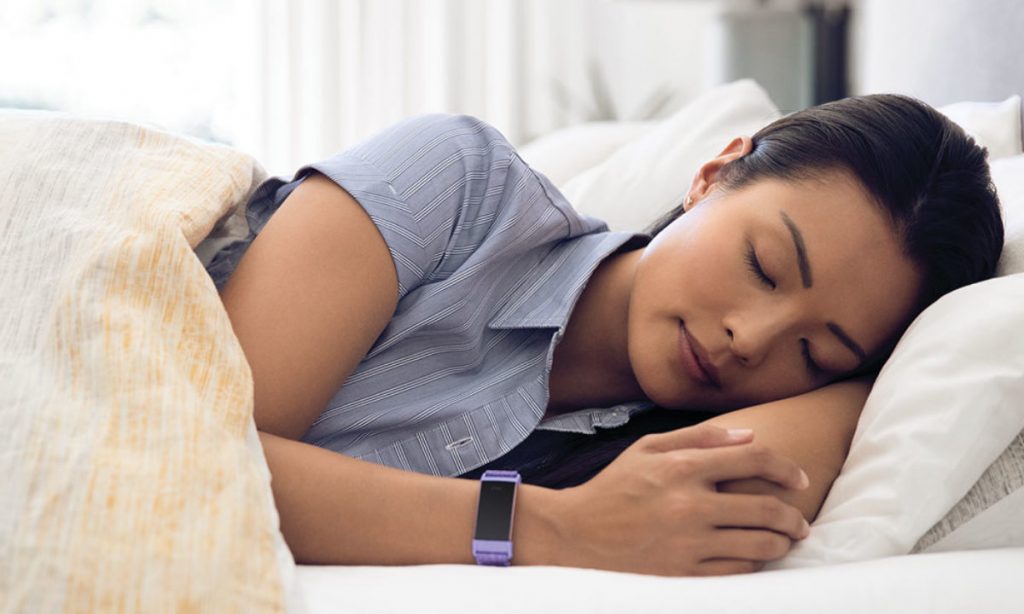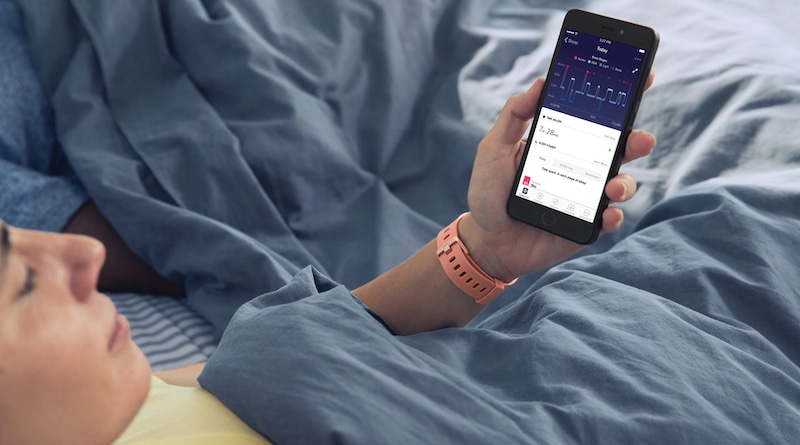Restful sleep is necessary for one’s overall health as it affects the physical and mental functioning the following day and the metabolism and immunity. That said, if you are unsure whether you have a durable and quality sleep, the best thing to do is to track it.
One of the most popular devices for sleep on the market is the Fitbit smartwatch which also offers plenty of valuable features. But how does Fitbit track sleep? If you want to learn more about this high-end device, keep reading this article.

How Does Fitbit Track Sleep
The sleep feature available on Fitbit estimates the user’s sleep stages by their movement and heart-rate patterns.
In other words, if you don’t move for an hour, the gadget assumes you are sleeping. The time length of the movements that indicate sleep also confirms that you are indeed asleep.
Sleep tracking
Fitbit tracks your sleep by following your movements but also the beat changes regarding heart rate. The number of beats changes determines whether you are having a light sleep, deep sleep or whether it is a case of a REM sleeping stage.
The sleep score you can view the following morning sums up your sleep quality, duration, and restoration (oxygen variation). The sleep score ranges from 60 (considered poor) to 90-100, which is an excellent sleeping score.
The metrics of your movement, heart rate, and stages of sleep are gathered into an overall sleeping score. This sleeping score will tell you whether you are having quality sleep and how energized and recharged your body will be the following day. Fitbit will also help you set goals and create better habits to get a more restful sleep.
Great features
Using signal processing and algorithms, Fitbit also tracks the total sleep time, notices restlessness patterns, and determines how many times you have woken up during your sleep.
While the heart rate variability ratings are not a replacement if you need to see a sleep specialist, they can provide accurate information regarding your sleep patterns.
Fitbit smartphones also have a Smart Wake feature which finds the best time to wake you up before the alarm so that you wake up refreshed and well-rested. Smart Wake avoids waking you up during deep sleep, so this feature can benefit your sleep schedule and your sleeping pattern.
By tracking your sleep, Fitbit provides information on how you sleep each night, helps you wake up calm and refreshed, and assists you in forming habits for healthier sleep. The latest includes setting goals and reminders to contribute to a night of restorative sleep.
This type of gadget offers personalized scores for every user. It also gives you insights into which activities affect your sleep and tips on improving sleep quality. This smartwatch also evaluates sleep patterns by gender and generation.

How to Check Your Sleeping Score
To read the sleep results and determine whether you have enough restful sleep every night, you must log in to the Fitbit app. That is possible both via IOS and Android devices.
Once that is settled, you need to sync your Fitbit. When you open the app, select ‘Sleep Time’, and you will notice each sleep stage represented with a graph.
However, for this feature of Fitbit to work successfully, you need to have slept for at least three hours. The sleep section also explains how you slept and provides you with the average amount of sleep per week.
If you want to track sleep on Fitbit, you need to wear the smartwatch while you are sleeping, and it will automatically detect sleep. The data from your sleep stages can track your sleep patterns and notice any variations.
If you have any health concerns about sleep, we recommend contacting a healthcare professional.
Sleep stages
There is no specific preparation to sleep as Fitbit is set up to track your sleep by default when you go to bed. However, you can check whether the watch is fastened tightly around your waist and check whether the heart rate monitoring option is enabled.
Once Fitbit tracks your sleep, it will describe one of the following sleeping stages: light, deep, or REM sleep.
If you woke up refreshed and energized in the morning, you probably experienced a deep sleep. This type of sleep typically occurs in the first hours of your sleep when it is harder to be awakened.
On the other hand, light sleep occurs in the first minutes when you fall asleep, and during this stage, you can be easily awoken. When it comes to REM sleep, this is the final stage of your sleep, when your brain becomes more active, which leads to dreaming.
After sleep
Once you wake up from your sleep, the Fitbit watch will register that you are awake and will stop tracking your sleep. Then on the app, you will be able to check how much sleep you got overnight and read a detailed breakdown of the sleep stages that occurred during your sleep.
Additionally, if your Fitbit smartwatch can measure blood oxygen saturation, you will also see how it fluctuates during the night. By doing so, Fitbit may also predict potential health conditions such as allergies, asthma, and sleep apnea.
Depending on the severity of the situation, Fitbit can also give you recommendations to visit a specialist.
Read more: What Can a Smartwatch Do Without a Phone?
Conclusion
If you have been wondering how does Fitbit track sleep during the night, hopefully, you have discovered everything. Even though the Fitbit smartwatches are mainly associated with tracking running and workouts, these gadgets can also successfully track your sleep.
These smartwatches provide sleep results to determine whether you have enough restful sleep every night. Tracking such data can help you improve the quality of your sleep as well as help you maintain a healthy sleep schedule.